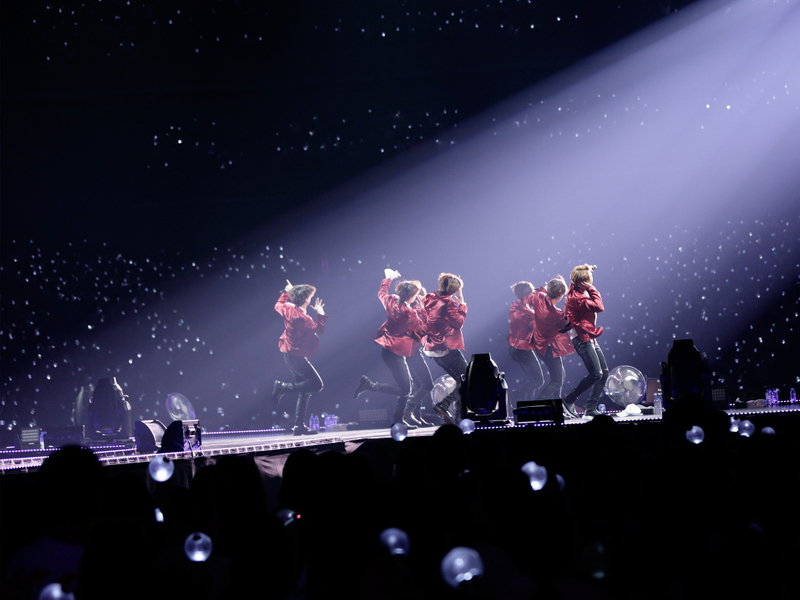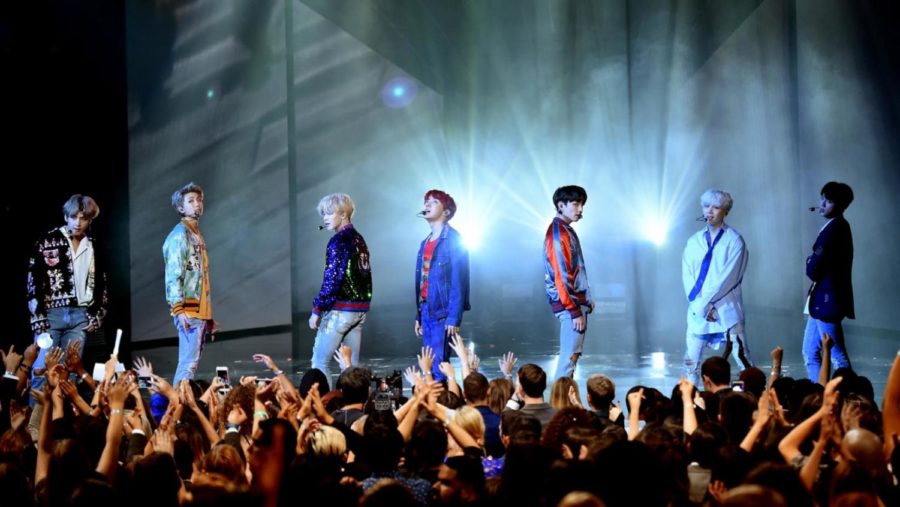The Dark Truths Behind the Rising K-POP Industry
November 13, 2019
In today’s society, K-POP, or South Korean pop music, has become a global phenomenon, acclaiming fans from all around the world; through their trendy outfits, upbeat and catchy tunes, and eye-catching dance routines, these idols have captured the hearts of millions.
Bands from the industry such as BTS, EXO, and Twice have a huge following on social media and are just as popular as Justin Bieber or Arianna Grande. And while these Korean pop stars’ lives seem impossibly perfect and flawless, there is a heavy price to pay for the fame and fortune they receive and in most cases, the career has more cons than pros.
Underneath the surface of the industry, there are many shocking truths that are hidden such as the high and strict expectations of maintaining a perfect physical figure. Many of the idols go on various extreme diets in order to achieve a weight that is viewed as worthy to the public eye.
Girls, who range from the ages 16 and older, try to achieve weights of 100-120 pounds and guys try to achieve a muscular and toned body. However, this pressure is not completely enforced by the idol’s own will. Most of the time, they must achieve a certain weight because they agreed to it as a part of their contract and is also in addition to cyber-bullying and fat-shaming from their own fans.
Because physical aesthetic is so prioritized in the K-POP culture, idols will go on diets such as eating only 250-500 calories per day and limiting foods that they eat to only salads, water, and eggs. These diets will go on for weeks and allow these stars to lose around 20-30 pounds in nearly a month. In one extreme instance, member Choi Seung-Hyun from the band Big Bang, drank only water and ate only red jelly beans in addition to working out every day. The idol lost about 44 pounds in just 40 days.
Undergoing plastic surgery is also expected of idols in order to perfect their facial features. These surgeries include reshaping the nose or getting rid of mono lids. These high physical standards are not the only thing required to become an idol.
K-POP idols must go through rigorous training before debuting and often last up to 15 years taking up much of their adolescence. They are obligated to go through with these “boot camps” when signing a contract to an entertainment company and if they fail to follow through with the commitment, they must pay a hefty fee. Over those several years, the idols are drilled with vocal, dance, model, and acting lessons and much more such as how to interact with fans.
Unfortunately, the rigorous training they endure does not always guarantee a successful career because of how competitive it is in this industry. Idols who fail to be successful are often already 20-30 years old and have trouble finding other jobs because they dedicated almost their whole lives to this career and have not obtained a college degree. However, even if they complete their training and have successful results, their lives, now open to the public, are not exactly perfect and glamorous afterward.
After their rigorous training finishes, they are still being controlled by executives and managers. For instance, many idols cannot date or are unwilling to because it ruins their public image. This is due to how fans often get jealous of their idol’s significant idol and ultimately lose interest in the band which also decreases the idol’s income. Idols must also follow strict schedules, that consist of many training sessions, interviews, shows, and concerts. Their lives leave little to none free time and many of the stars only see their family once or twice in a year.
The amount of work and stress that these stars go through tremendously affects their mental and physical state. In addition to the stress from their work, they also are affected by the immense amount of criticism and hate they receive from social media and the expectations of the South Korean culture.
In an unfortunate recent tragedy, singer Choi Jin-Ri from the band f(x) committed suicide on October 14th, 2019, due to hate comments on her social media. Another KPOP star from a band called Shinee, Kim Jonghyun had also committed suicide earlier in the year due to depression and also most likely the overwhelming pressure he has faced almost half of his life.
As a Korean American, it truly breaks my heart and fills it with grief when I hear about these idols and the struggles they go through. These idols took a gamble in life to pursue something they love to do, and therefore they should be able to embrace their individuality but most importantly embrace their flaws as well. The culture that surrounds this industry is very unwilling to accept those differences and ignorant about these types of issues such as mental health.
Although South Korea is known for its technological advances and for one of the most prestigious schools in the world, the country is extremely conservative despite its modern advances. There are still stigmas and taboos around mental health, sexuality, race, and feminism and this needs to change. Not solely for these artists, but for students and the younger generation in Korea. These idols are just a few examples of the many citizens who feel the formidable pressure to be successful in the fast-paced society. The pressure can be so overwhelming that it drives many to commit suicide; the country has one of the highest suicide rates in the world. The upcoming generation of Koreans deserves to be in a surrounding where they are comfortable being themselves instead of being coerced by society’s standards to fit a mold and hide their “imperfections”. Idols and the citizens of South Korea deserve to put their own ideas of happiness and wellbeing first, not of society’s.
“Well I hope that idols will be treated more humanely,” says Celine Kim, a sophomore at Wayne Hills and also a Korean American. “They may be entertainers but firstly and most importantly, they are human beings. They should be seen for their passion and the career that they chose as an idol and their career should be something that they enjoy doing on their own, strive to get better at it, and not forced to do it. Korea itself is a very conservative country so I think it would be great if their viewpoints on certain societal norms would change because the ones in place right now are extremely toxic and harmful to not only idols but everyone.”

















